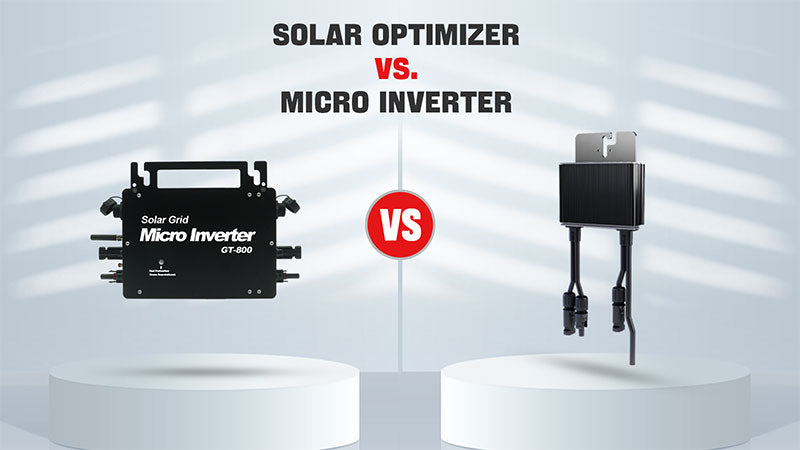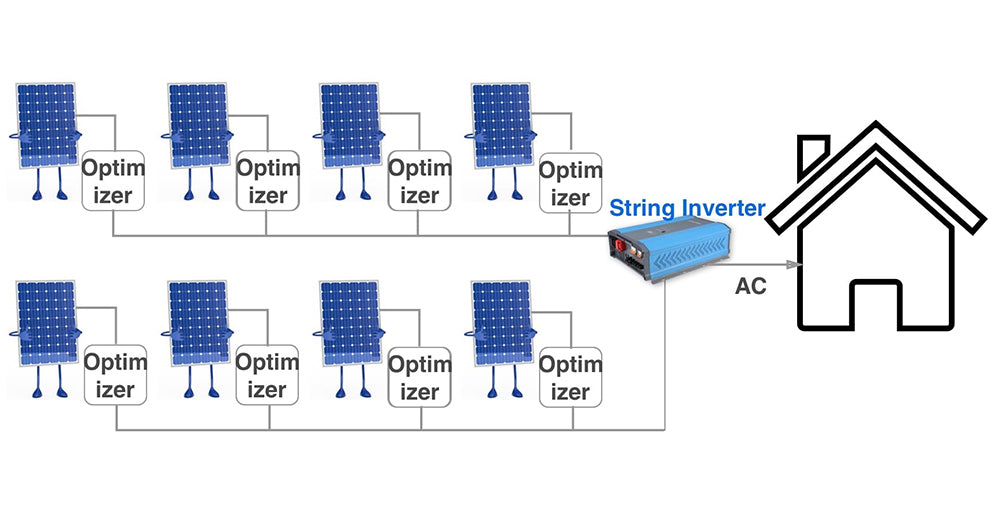
In today's rapidly evolving solar energy landscape, choosing the right equipment for your solar installation is crucial. ECGSolax, a leading solar energy company, specializes in offering affordable solar inverters, charge controllers, lithium batteries, and solar-related accessories. When it comes to optimizing the performance of your solar panels, two technologies stand out: Microinverters and Power Optimizers. In this blog, we will explore these technologies, understand how they work, and guide you on making an informed decision for your solar system.
What is a Microinverter and How Does It Work?
A microinverter is a device that revolutionizes the way solar panels convert sunlight into electricity. Unlike traditional string inverters, microinverters are installed individually for each solar panel. This means that each panel operates independently, converting direct current (DC) into alternating current (AC) at the panel level. Microinverters come with real-time monitoring capabilities, enabling you to track the performance of each panel. In case one panel underperforms due to shading or other issues, it won't affect the overall efficiency of the entire solar array. Microinverters ensure you get the maximum energy production from your solar panels.

What is a Power Optimizer and How Does It Work?
Power optimizers are another innovative solution for solar panel optimization. They work in conjunction with a central inverter, optimizing the performance of individual solar panels by regulating the voltage and current. While microinverters convert DC to AC at the panel level, power optimizers focus on maximizing the DC output from each panel before sending it to the central inverter for final conversion into AC electricity. Like microinverters, power optimizers also provide real-time monitoring and enable you to track the performance of each panel. They ensure that even in situations where some panels are underperforming due to shading or other factors, the overall system's output remains as high as possible.
Microinverter vs. Power Optimizer: How to Choose
Choosing between microinverters and power optimizers depends on your specific requirements and the characteristics of your solar installation. Here are some key considerations to help you make the right choice:
Key Differences Between Microinverter and Power Optimizer
-
Cost: Microinverters are generally more expensive on a per-panel basis, while power optimizers offer a cost-effective solution that falls between microinverters and traditional string inverters.
-
Panel Independence: Microinverters make each panel independent, whereas power optimizers work in conjunction with a central inverter, providing more flexibility.
-
Shading: Microinverters are more effective at mitigating the impact of shading on individual panels. Power optimizers also help with shading issues but not as effectively as microinverters.
Scenarios Favoring Microinverters
- Limited Roof Space: If you have limited roof space and want to maximize energy production from every panel, microinverters are the better choice.
- Complex Roof Design: For installations with varying panel orientations and tilt angles, microinverters can optimize each panel's output independently.
Scenarios Favoring Power Optimizers
- Budget Constraints: If you are looking for a cost-effective solution that offers some of the advantages of microinverters, power optimizers can be a good compromise.
- Scalability: For larger solar arrays where scalability is essential, power optimizers can be integrated into a system more easily.
In conclusion, the choice between microinverters and power optimizers is not one-size-fits-all. ECGSolax offers a range of high-quality solar energy solutions, and their experts can help you make the right choice based on your unique requirements. Whichever technology you choose, you're on the path to harnessing the full potential of your solar panels and enjoying the benefits of sustainable, efficient energy production.


0 comments